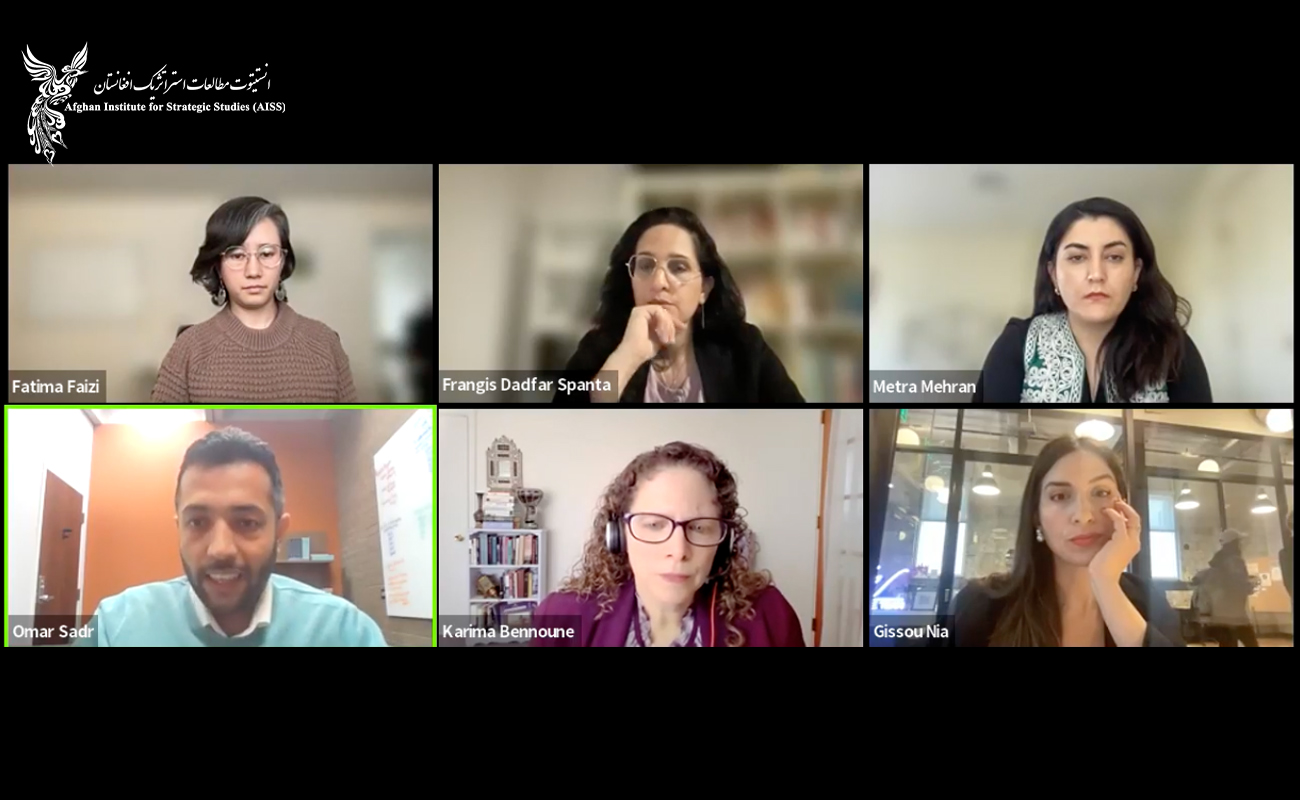Webinar Discussion on Taliban’ Gender Apartheid: Moving Beyond Condemnation
Since the Taliban’s return to power in August 2021, all the progress of the last two decades for women and girls has been erased. The Taliban are again imposing a regime of gender apartheid in Afghanistan in violation of international law, as they did back in the 1990s. The term gender apartheid refers to the systematic discrimination and segregation of women and men, and may also systematically exclude women from public spaces and spheres. Sadly, this is a reality for women and girls in Afghanistan.
Through law and policy, the Taliban are depriving women of the freedom of access to health care, access to justice, the right to participate in government, to work, to education, to freedom of expression, to freedom of assembly, to freedom from violence, and more.
'Taliban's Gender Apartheid: Beyond Condemnation' webinar organised by the Afghan Institute for Strategic Studies (AISS) has taken place to increase public awareness about gender apartheid in Afghanistan and the human rights of Afghan women and girls. The event was opened by the moderator & journalist Fatima Faizi.
The first speaker of the event, Dr. Karima Bennoune, Lewis M. Simes Professor of Law at the University of Michigan Law School & former UN Special Rapporteur, provided an overview of the apartheid framework and explained the added values of using this framework to address the situation in Afghanistan.
The second speaker, Dr. Omar Sadr, Senior Research Scholar, Centre for Governance & Markets (CGM), University of Pittsburgh examined the root causes of gender apartheid in Afghanistan, including cultural and traditional factors that contribute to its persistence. Omar Sadr
The thrid speaker, Dr. Frangis Dadfar Spanta, Peace & Conflict Researcher, Bonn International Centre for Conflict Studies shed light on the response by the international community to this issue and what more could be done to support Afghan women and girls.
The fourth speaker, Human Rights Activist, Metra Mehran paid attention on the actions taken to stop this oppressive system and empower women and girls to live their lives with dignity and equality. She also spoke about what would have been the outcome of the discussions between the US & Taliban officials on the Doha agreement if women were more involved. Metra Mehran
On the International Women’s Day, 8th of March 2023 a campaign has been launched by a prominent group of Afghan and Iranian women calling for gender apartheid to be recognised as a crime under international law. Signatories of the open letter include the Iranian Nobel peace prize laureate Shirin Ebadi; the first female deputy speaker of the Afghan parliament, Fawzia Koofi; a commissioner of the Afghan Independent Human Rights Commission, Benafsha Yaqoobi; as well as many activists still fighting for their rights in Afghanistan and Iran. So, the fifth speaker, Gissou Nia, Human Rights Lawyer & Board Chair of the Iran Human Rights Documentation Centre & member of this campaign brought visibility to this issue in order the policy makers to take a concrete action. Gissou Nia
Given this worsening crisis, the gender apartheid approach is increasingly endorsed and used by many Afghan women human rights defenders at the forefront of challenging Taliban practices as the international community fails to offer a robust response.
This panel has served as a platform for the voices of these Afghan women so that their direct experiences are incorporated into a discussion and analysis of these issues.

